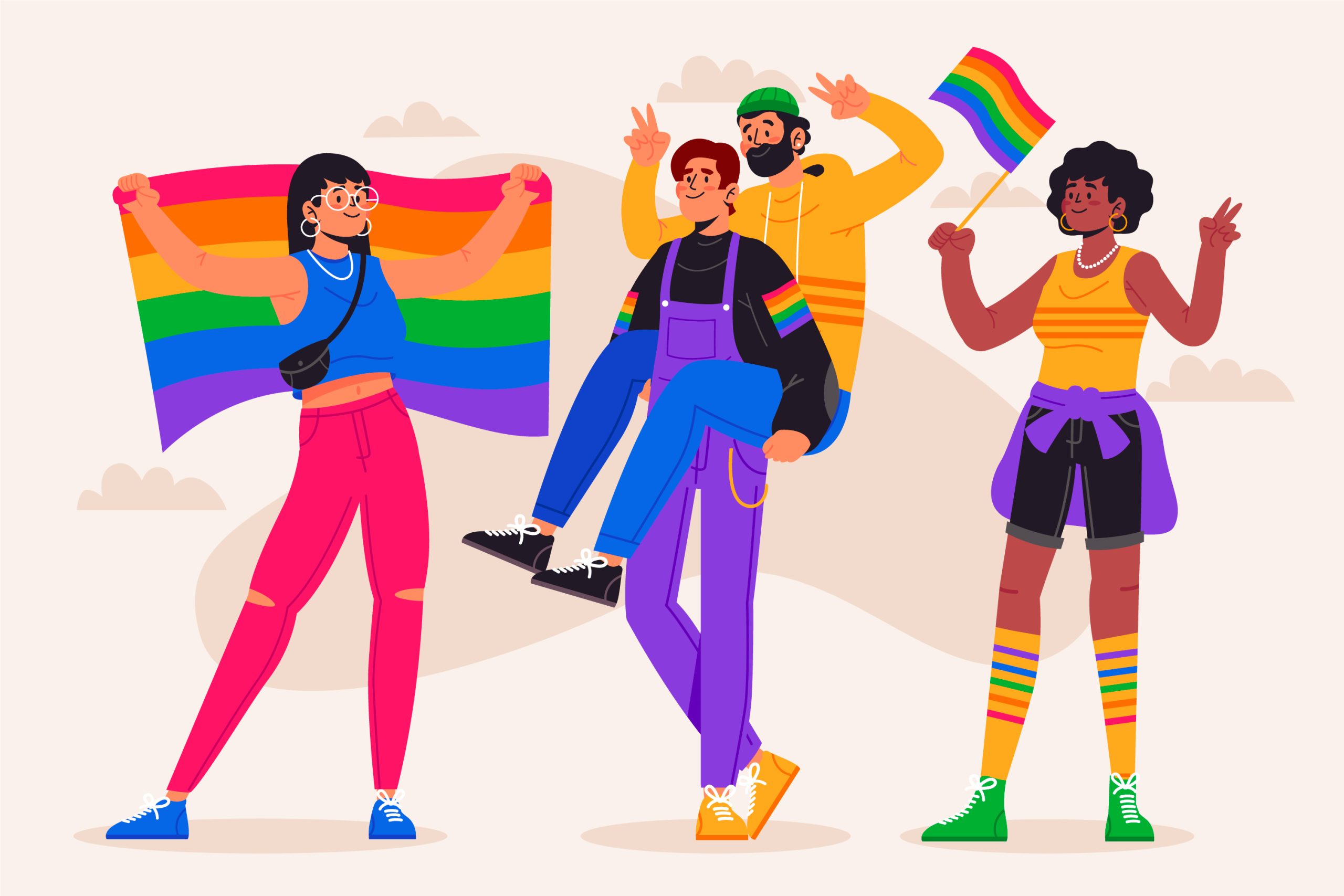Do you have a friend, family member, co-worker, or acquaintance who is part of the LGBTQ+ community? If so, you could be an ally to them.
While they play a supporting role, allies can be effective and powerful voices in promoting LGBTQ+ rights and acceptance. Here are six ways how you can be a good ally
Don’t assume
In Philippine culture, there’s an unspoken belief that everyone is straight unless stated otherwise. But in general, making assumptions about people isn’t really a good thing.
LGBTQ+ people don’t look, dress, act, or speak in a particular way. Someone’s sexuality also isn’t determined by their past or current partner(s).
Even if they’re your friend, it’s better to not make assumptions about their identity. This way, you’re giving them space to be their authentic selves..
They’ll eventually open up to you in their own time once they feel safe and comfortable enough with you.
Be open
Oftentimes, the world views and treats them differently. Being a good ally involves understanding your LGBTQ+ friends’ perspectives and personal stories.
Take the initiative to learn about LGBTQ+ history, language and terminology, as well as the struggles that the community still faces today.
While your friend would gladly answer all your questions, the Internet has a plethora of resources you can turn to.
You can start with learning about the range of sexualities in the LGBTQ+ spectrum, as well as knowing the differences between gender, gender identity, sex, and sexual orientation.
Be aware of your language
Communication and language form human connection. And this is especially important for your LGBTQ+ friends.
If a friend prefers to be called by a certain name or pronoun, please respect and use it whenever you’re speaking or referring to them.
In case you’re not aware of their pronouns, one way you can help them be comfortable opening up is by saying “Hi, my name is ____, I use _____ pronouns,” or “By the way my pronouns are ___.”
Check your privileges
Almost everyone (even those within the LGBTQ+ community) have some type of privilege — whether it’s about race, social class, education, being cis-gendered, able-bodied or straight.
Being privileged doesn’t mean not having to face struggles in life. It just means that you have a special advantage or benefit just because of the way you were born. So there are some things that aren’t a problem to you, or you won’t ever have to think or worry about.
When you understand your own privileges, it helps you empathize with marginalized or oppressed groups.
Confront your own unconscious prejudices
Because of social constructs and norms, you could unconsciously have biases, stereotypes, and assumptions.
Here are some things to think about: do you ever make sexist jokes, or jokes that demean a particular gender? Have wrongly assumed someone’s partner is of a particular sex or gender by simply basing on how they look or act? Do you sometimes expect someone to behave in a certain way after just because of their gender?
It’s alright if you’ve said yes to any of the statements above. Now that you’re aware of these unconscious prejudices, you can be a better ally! Accept that you could be wrong at times and be willing to work on these mistakes.
Support them in their journey
Actions speak louder than words. And simply calling yourself an ‘ally’ isn’t enough.
Being an ally doesn’t end at saying “I support the LGBTQ+ community.” You need to be consistent in supporting LGBTQ+ rights, and defend LGBTQ+ people against discrimination.
Little things, such as accompanying a friend to the Pride parade or rally, can already mean so much for them. And, while it’s difficult, you should call out anti-LGBTQ+ comments and jokes, and homophobia, transphobia or queerphobia.
True acceptance and respect will only happen when all members of the society make an effort to make the world a better place for the LGBTQ+ community. And, hopefully, your open and consistent support will be a good example for others to follow suit.
Also, supporting businesses, projects, and other initiatives owned or operated by LGBTQ+ people. Doing so makes them feel seen and appreciated in society.
Sources:
Carroll, N. (December 5, 2020). 7 ways you can be a better LGBTQ+ ally. UCL. https://www.ucl.ac.uk/students/news/2020/dec/7-ways-you-can-be-better-lgbtq-ally
Archie, A. & Griggs, B. (February 18, 2019). How to be an ally to your LGBT friends, relatives and co-workers. CNN. https://edition.cnn.com/2018/06/22/health/lgbt-how-to-be-an-ally-trnd/index.html
Price, D. (April 30, 2018). When (& How) to Ask About Pronouns. Medium. https://devonprice.medium.com/when-how-to-ask-about-pronouns-b7fc24df6653



